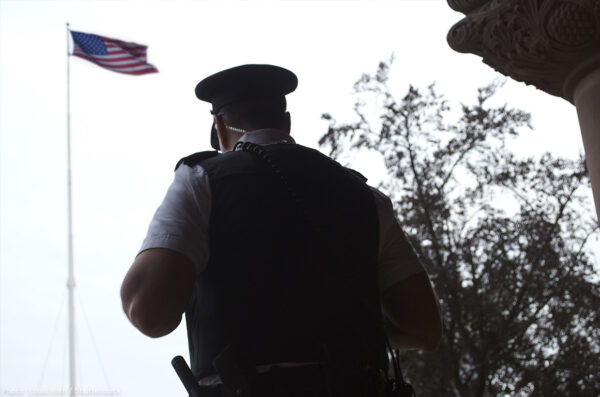Reforming Police
Featured
Arizona
Oct 2023

Reforming Police
Racial Justice
Fund for Empowerment v. Phoenix, City of
Fund for Empowerment is a challenge to the City of Phoenix’s practice of conducting sweeps of encampments without notice, issuing citations to unsheltered people for camping and sleeping on public property when they have no place else to go, and confiscating and destroying their property without notice or process.
All Cases
31 Reforming Police Cases

Michigan
Feb 2020
Reforming Police
Criminal Law Reform
Hightower v. City of Grand Rapids
The American Civil Liberties Union of Michigan and the ACLU's Criminal Law Reform Project filed a federal lawsuit in May of 2013, on behalf of Plaintiffs Gilbert Weber and Tyrone Hightower, challenging the Grand Rapids Police Department's longstanding practice of arresting innocent people for criminal trespass on commercial property without warning and without the business owner's knowledge. Even where those arrested are patronizing the business in question, police justify these illegal arrests by pointing to form letters signed by business owners months or years prior to the arrest agreeing to prosecute "trespassers."
Explore case
Michigan
Feb 2020

Reforming Police
Criminal Law Reform
Hightower v. City of Grand Rapids
The American Civil Liberties Union of Michigan and the ACLU's Criminal Law Reform Project filed a federal lawsuit in May of 2013, on behalf of Plaintiffs Gilbert Weber and Tyrone Hightower, challenging the Grand Rapids Police Department's longstanding practice of arresting innocent people for criminal trespass on commercial property without warning and without the business owner's knowledge. Even where those arrested are patronizing the business in question, police justify these illegal arrests by pointing to form letters signed by business owners months or years prior to the arrest agreeing to prosecute "trespassers."

U.S. Supreme Court
Oct 2019
Reforming Police
Torres v. Madrid
Whether the Fourth Amendment applies to a police officer's intentional use of physical force against a fleeing person, if that use of force does not succeed in terminating her movement.
Explore case
U.S. Supreme Court
Oct 2019

Reforming Police
Torres v. Madrid
Whether the Fourth Amendment applies to a police officer's intentional use of physical force against a fleeing person, if that use of force does not succeed in terminating her movement.

U.S. Supreme Court
Feb 2019
Reforming Police
Criminal Law Reform
Nieves v. Bartlett, 17-1174
Whether a plaintiff who claims that a police officer retaliated against his First Amendment-protected expression by arresting him for a misdemeanor is barred from suing if the police had probable cause for his arrest.
Explore case
U.S. Supreme Court
Feb 2019

Reforming Police
Criminal Law Reform
Nieves v. Bartlett, 17-1174
Whether a plaintiff who claims that a police officer retaliated against his First Amendment-protected expression by arresting him for a misdemeanor is barred from suing if the police had probable cause for his arrest.

Arizona
Aug 2017
Reforming Police
Cox v. Voyles, et. al.
The ACLU, the ACLU of Arizona, and the law firm Perkins Coie filed the case in 2015 against the Sheriff, the County Attorney, and other Pinal County, Arizona officials, for their enforcement of Arizona’s civil asset forfeiture laws.
The defendants filed three motions to dismiss, but a federal court ruled on August 18, 2017, that the claims at the heart of the case can move forward. The judge found that the lawsuit establishes a plausible claim that the state’s asset forfeiture laws violate due process rights “because Defendants have a financial incentive to zealously enforce the forfeiture laws.”
Explore case
Arizona
Aug 2017

Reforming Police
Cox v. Voyles, et. al.
The ACLU, the ACLU of Arizona, and the law firm Perkins Coie filed the case in 2015 against the Sheriff, the County Attorney, and other Pinal County, Arizona officials, for their enforcement of Arizona’s civil asset forfeiture laws.
The defendants filed three motions to dismiss, but a federal court ruled on August 18, 2017, that the claims at the heart of the case can move forward. The judge found that the lawsuit establishes a plausible claim that the state’s asset forfeiture laws violate due process rights “because Defendants have a financial incentive to zealously enforce the forfeiture laws.”

U.S. Supreme Court
Mar 2017
Reforming Police
County of Los Angeles v. Angel Mendez
Whether the Ninth Circuit’s “provocation rule” that police officers may be held liable for using force when they provoked a threatening reaction with a Fourth Amendment violation is consistent with the Supreme Court’s use of force analysis in Graham v. Connor and subsequent cases?
Explore case
U.S. Supreme Court
Mar 2017

Reforming Police
County of Los Angeles v. Angel Mendez
Whether the Ninth Circuit’s “provocation rule” that police officers may be held liable for using force when they provoked a threatening reaction with a Fourth Amendment violation is consistent with the Supreme Court’s use of force analysis in Graham v. Connor and subsequent cases?
